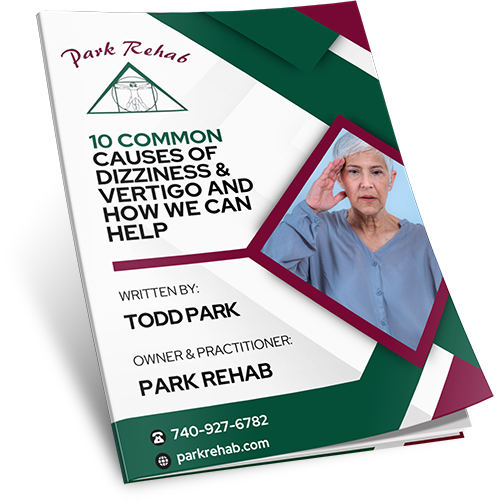Dizziness & Vertigo
Our goal is to help restore the normal function of the vestibular system and improve your balance, so you can resume your daily activities with confidence.
What Is Dizziness & Vertigo?
Dizziness and vertigo are common issues that many people face, particularly as they age. These conditions often arise from a problem in the vestibular system, which is responsible for maintaining balance and spatial orientation. One of the most common causes of vertigo is benign paroxysmal positional vertigo (BPPV). This condition occurs when tiny crystals in the inner ear become dislodged, affecting the balance system. BPPV causes brief episodes of intense dizziness or a spinning sensation, especially when moving the head in certain positions, such as lying down or turning over in bed.
In some cases, dizziness and vertigo can also result from other vestibular system disorders, such as vestibular hypofunction. This occurs when the vestibular system is not functioning properly, leading to difficulty with balance and spatial awareness. These conditions can have a significant impact on daily life, making it difficult to perform basic activities such as walking, driving, or even standing.
What are the symptoms of Dizziness & Vertigo?
The symptoms of dizziness and vertigo can range from mild to severe, and they can occur suddenly or gradually. Common symptoms include:
- Spinning Sensation (Vertigo): A feeling that either you or your surroundings are moving or spinning, which may be triggered by specific head movements.
- Unsteadiness or Loss of Balance: Feeling lightheaded, unsteady, or as if you might fall, especially when standing or walking.
- Nausea or Vomiting: Dizziness or vertigo often causes feelings of nausea, and in some cases, can lead to vomiting due to the disorienting nature of the sensation.
- Difficulty Focusing: Some individuals experience problems with concentration or difficulty focusing on objects due to the confusion caused by dizziness.
- Tinnitus (Ringing in the Ears): In some cases, dizziness and vertigo may be accompanied by ringing or buzzing sounds in the ears, a condition known as tinnitus.
These symptoms can have a profound effect on a person’s quality of life. They can limit mobility, increase the risk of falls, and even cause anxiety about leaving the house or participating in physical activities.
What Is Our Approach To Treating Dizziness & Vertigo?
At Park Rehab, we take a comprehensive approach to treating dizziness and vertigo. Our goal is to help restore the normal function of the vestibular system and improve your balance, so you can resume your daily activities with confidence.
- Comprehensive Assessment: The first step in treatment is a thorough assessment to determine the cause of your dizziness or vertigo. We take the time to evaluate your symptoms, identify any contributing factors, and develop a personalized treatment plan tailored to your needs.
- Epley Maneuver (For BPPV): If your vertigo is caused by benign paroxysmal positional vertigo (BPPV), we use the Epley maneuver, a series of head movements designed to move the displaced crystals in the inner ear back to their proper position. This treatment is highly effective in alleviating symptoms of BPPV and helping you regain balance.
- Vestibular Ocular Reflex (VOR) Exercises: If the issue is related to vestibular hypofunction or other dysfunctions of the vestibular system, we use VOR exercises (Visual Ocular Motor Reflex exercises). These exercises help to stimulate and retrain the vestibular system to improve balance and coordination, reducing symptoms of dizziness and vertigo. We guide you through these exercises, which involve focusing on visual targets while moving your head to engage and strengthen the vestibular system.
- Balance Rehabilitation: We also use various balance rehabilitation techniques, such as balance boards and other systems, to help improve stability and reduce the risk of falls. These treatments aim to restore normal motion and strength to the vestibular system, allowing you to regain confidence in your movements.
- Desensitization Techniques: For patients with more persistent symptoms, we employ desensitization techniques to help the body adapt to movements that trigger dizziness. By gradually reintroducing these movements in a controlled manner, we help reduce the intensity of vertigo and improve overall stability.
Our goal at Park Rehab is to help you regain the ability to perform normal activities without the fear of falling or dizziness. Through our specialized treatment methods and personalized care, we work to restore your balance and improve your quality of life.
Download Our free Report
Struggling with dizziness or vertigo? At Park Rehab, we understand how debilitating it can be which is why we invite you to download our FREE guide to understand the causes, symptoms, and effective treatments that can help you feel steady again. Don’t let dizziness control your life – take the first step toward lasting relief today!

